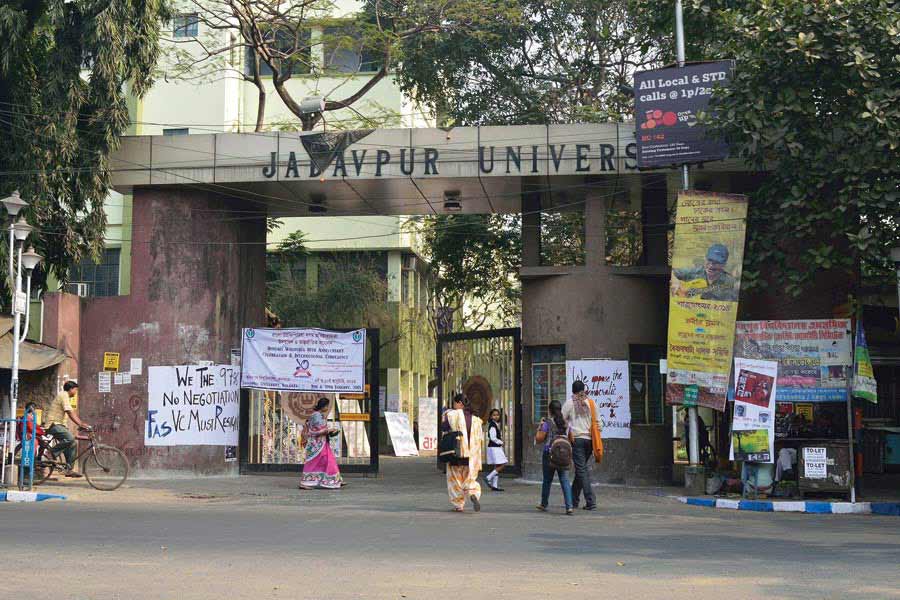JU body for fee hike to meet money demands


The finance committee of Jadavpur University has proposed to the executive council a slew of measures to mobilise resources and tackle the financial crisis the institution has been facing for years.
The proposals include raising fees paid by students and research scholars; hiking the rent for canteens, quarters, seminar and lecture halls; raising parking charges and making “proper use” of the guest house on the campus and the international guest house in Puddapukur.
JU’s finance committee has stated in a report — which was tabled at a meeting of
the executive council, the highest decision-making body of the university, on July 7 — that the university had a “net deficit” of Rs 22 crore in 2022-23 and ₹19 crore in 2023-24.
A member of the executive council said finance officer Debasish Pal told the council
that the students’ fees, static for 24 years, should be “rationalised”.
The finance committee’s report, which Metro has seen, says: “The committee is
also recommending to take action for revision of fees structure of the university.”
At JU, the monthly tuition fees for undergraduate students in the arts, science and engineering streams are ₹75, ₹150 and ₹200, respectively.
The monthly hostel fee, unchanged for 50 years, is ₹25.
In September 2022, then JU finance officer Gour Krishna Pattanayak had written in
the university’s newsletter that the UG fees were the “lowest across all universities and institutes in the country”.
As for the report tabled on July 7, executive council member Kazi Mashum Akhtar said: “The finance officer has not said how much the fees should be raised. But his proposals speak volumes about JU’s financial status.”
A member of the finance committee said: “Students from underprivileged backgrounds could be granted fee waivers. But those who can afford, should pay the full fees.”
A team from the National Board of Accreditation had visited JU in April to find out whether the engineering departments were maintaining the standards set by the All India Council for Technical Education.
The team had questioned the university authorities on why the fees were so low.
JU’s finance officer has also recommended “rationalisation” of the subsidy offered on power tariff to on-campus facilities like canteens, photocopy booths and residential quarters.
“The university pays a lot as subsidies,” said a JU official.
On June 16, 2023, this newspaper reported that JU’s deficit (₹24.05 crore) under non-salary heads (such as electricity charges and hostel and library expenses) for the 2022-23 fiscal was “more than the grant” (₹21.74 crore) it had received from the state government.
“Given the rate of inflation, the university should get ₹40 crore as aid in a year from the state government,” said a JU official.
Finance officer Pal told this newspaper: “Some measures have been suggested to raise resources internally and externally.”
The finance committee has recommended “approaching the state government for more additional maintenance grants”.
Interim JU vice-chancellor Bhaskar Gupta said: “We will go through the proposals and then decide.”